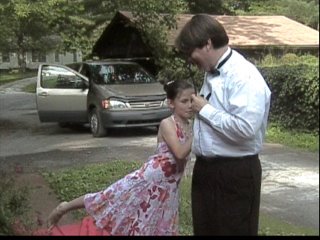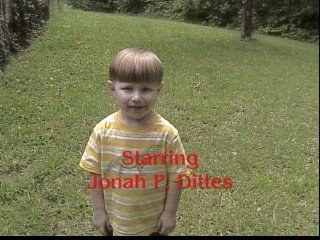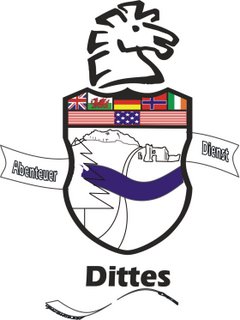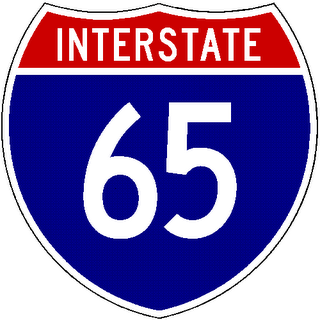I don't remember exactly what my pastor and I were discussing that Sabbath four weeks ago in his office. I do remember looking over at his bookshelf and jumping up with a start: "You have Chilton's
Rabbi Jesus!" I blurted. "Can I read it?"
I'm a big fan of Bruce Chilton, an Anglican priest and college professor. A few years ago I bought his book,
Rabbi Paul, and that book has been real food (both intellectual and spiritual)--I've read it twice, and now I'm going back through it, cross-referencing the texts that he cited. It let me into Paul's writings in a number of dramatic ways: (1) providing a convincing narrative that connected his travels and his writings; (2) providing a well-researched context for the communitites in which he worked (pharisees, school of Gamaliel, Tarsus, etc.); and (3) giving unique analysis to Paul's writings.
I come from a literalistic theological background which has traditionally focused solely on scripture without getting bogged down on scholarly criticism or the social/philosophical context of the writings of the Bible. For the most part, this is a good thing. I haven't spent time wondering if the Resurrection was physical or metaphorical; I haven't tried to disprove the clear message of the Bible based on some scholar's hypotheses.
But my fascination for scholarly, Bible-related works has grown over the years. Much of what is out there, thanks to people like Crossan, Pagels, and Ehrman, is recycled 2nd-century heresies, repackaged to show "oppressed, alternate strains" of Christianity and supposedly trump the testimony of the New Testament (written within 70 years of Christ's death--and the single-most vetted book in the history of literature).
Chilton could easily be lumped together with the afore-mentioned writers. I would not call him orthodox by any means, yet his arguments are usually well-supported and enlightening. His books are worth the read, particularly if you're up to a challenge. I'll review the book based on the three points I mentioned above.
The Teaching/Travel Narrative. Traditional readings of the gospels have the birth story, the temple scene and then a big gap between Jesus at age 12 and the beginning of his ministry around his 30th year (John mentions four trips to Jerusalem, while the other three gospels mention only the final, climactic visit). Chilton gets rid of most of the gaps, starting in Jesus' adolescence, theorizing that Jesus (a
mamzer rejected by the community because of his questionable parentage) went to Jerusalem around age 14, along with his devout, legitimate brother, James. He dropped away from his family in the busy streets of Jerusalem and spent the next six to eight years as a disciple of John the Baptist. Chilton shows Jesus leaving John's side just a few months prior to John's arrest and picking up disciples of his own in Galilee--per the Gospel of John.
He also stretches the traditional three years of Christ's ministry out to ten or more, including a number of years spent back at home, working as a handyman in Nazareth, and more years in Capernaum. He then sends Jesus wandering as Herod Antipas grows wary of this "new John" and pursues him throughout Galilee/Syria. The fear of arrest, the need to differentiate his mission from that of John, the great desire to see fulfilled the prophecies of Ezekiel and Zechariach--these are used to explain Jesus' motives for his travels as well as his teachings.
I find some of it persuasive--the close connection with John, the fear of Herod, the final mission to Jerusalem--but some leaps are too far for my orthodoxy. For example, he mentions the temptations of Christ as coinciding with the aftermath of the Feeding of the 5,000, rather than earlier in Christ's ministry. Also, Chilton as a secular-oriented scholar explains things like Christ's walking on water, the Transfiguration, the Resurrection, as "shared visionary experiences" rather than literal ones. I'm not bound by book sales or scholarly criticism to affirm my faith in each of these.
One fascinating divergence Chilton takes is incorporating the story of Barnabas. Using tradition and some mid 2nd-century sources, he writes that Barnabus (whose family was from Cyprus) had a home in Jerusalem where Jesus might have stayed--and he may have even been the host for the Last Supper. The Bible does show that Barnabus was one of the first apostles, and that he later sold his lands and donated the proceeds to the Jesus Movement.
Context for 1st-Century Communities. Chilton's description of the temple as it appeared in Jesus' day is vivid and breathtaking in its scope. I also appreciated his explanation of Ezekiel's fiery chariot visions and how they informed both the worldview of John and Jesus. Most interesting was the dichotomy between John's practice of watery baptism and Jesus' meal-oriented sacraments--although Jesus directed his disciples to baptize, I had never before wondered why he, himself, never baptized anyone until I read this book.
Chilton is an astute observer of the political dynamics of 1st-century Galilee and Judeah, tracing Pilate's vacillations back to a Roman political scandal involving his mentor, Sejanus, and explaining how the forces of Pilate, Caiaphas, and Herod united against Christ after his cleansing of the temple. He spends six pages reflecting on the duties of a 1st-century handyman. My orthodox sensibilities were offended, however, by his repeated use of the term "illiterate peasant" to describe my Savior. Personally, I see it as a derogatory term--I think there are ample mentions of Christ reading or quoting scripture in the gospels--but he may have intended it more to reflect historical/class details than prejudice.
Finally, Chilton is able to give
unique analysis to Christ's teachings. The most fascinating was in the dichotomy with John's message. Jesus believed that the Spirit of God was available to everyone at any time--not necessarily through baptism but through remembrance and thanks, best typified by the way Christ remembered his heavenly Father at meal times. (Chilton focuses a lot on Christ and food--even speculating that at the end of his stay in Capernaum, just before Herod's pursuit, Jesus had developed a paunch.) To me, this was the revolutionary idea of Christ's work. The Kingdom of God was a community of believers--one very effectively set up by Christ.
I also appreciated the discussion of the Ezekiel and Zechariah texts--two books that I haven't studied sufficiently before. Ezekiel speaks of envisioning a flaming chariot (the throne of God), and Chilton writes that this vision was ever before Jesus, fueling his mission. Jesus' gift to his disciples, then, was the incorporation of this vision within them--along with others, as I have mentioned above.
Finally, the Zechariah prophecies that showed a cleansed temple at which the world would worship helped to explain the impetus for Jesus' final trip to Jerusalem, his dramatic demonstration in the temple, and his combative demeanor with the pharisees he debated there.
There are really two kinds of narratives for the life of Jesus: those where he walks among men, and those where his feet barely touch the ground because of his godliness.
Rabbi Jesus belongs among the former type: every idea may not please the orthodox among us, but the view will give us a compelling portrait of the man we know as the Son of God.
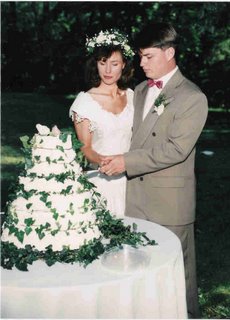 I love May 29. It gives me a chance to do the following things:
I love May 29. It gives me a chance to do the following things:
